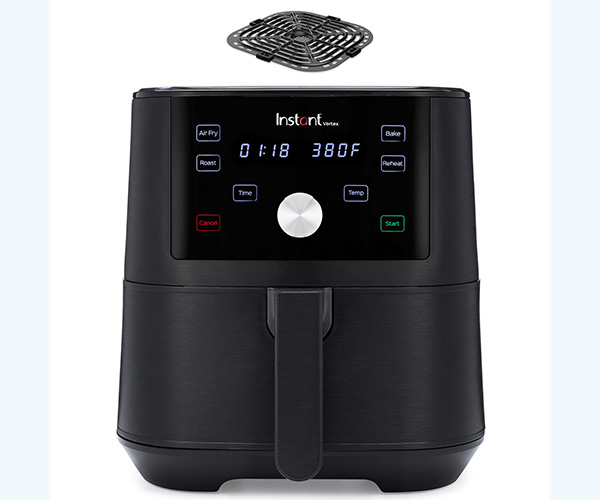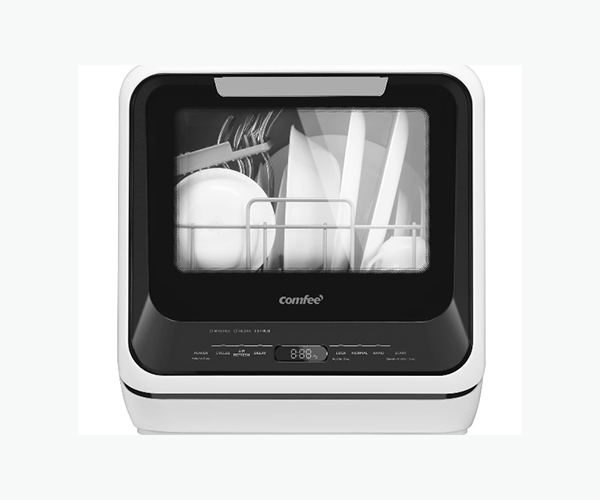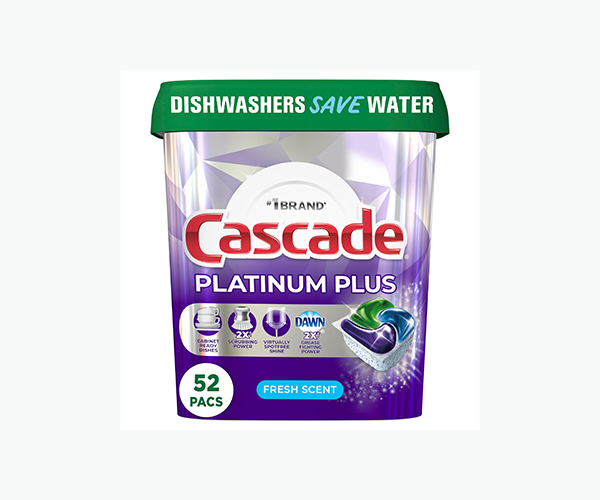Introduction
In today’s fast-paced world, the kitchen has evolved to become a hub of innovation and efficiency. At the heart of this transformation is the dishwasher, an indispensable appliance that promises convenience and time-saving benefits.
- Why are dishwashers important?
- Modern Kitchens: With the rise of open-concept homes, the kitchen is more than just a place to cook. It’s a space where families gather, and a clean, clutter-free environment is essential.
- Convenience: Gone are the days of scrubbing dishes by hand. With a dishwasher, you can simply load, set, and forget.
- Benefits of Using a Dishwasher:
- Saving Time: On average, using a dishwasher can save up to an hour per day compared to hand washing.
- Efficiency: Dishwashers use hot water and high pressure to ensure dishes are spotless and sanitized.
- Water Conservation: Modern dishwashers are designed to be eco-friendly, using less water than traditional hand washing.
- Safety: With the ability to sanitize dishes at high temperatures, dishwashers can help reduce the spread of germs and bacteria.
In the subsequent sections, we’ll delve deeper into the different types of dishwashers, how to choose the right one for your needs, and tips for maximizing its efficiency and lifespan. Whether you’re a first-time buyer or looking to upgrade, this guide is your comprehensive resource on all things dishwasher-related.
Types of Dishwashers
When it comes to selecting the perfect dishwasher for your kitchen, understanding the different types available in the market is crucial. Each type has its unique features, advantages, and potential drawbacks. Here’s a breakdown:
- Built-in Dishwashers
- Pros:
- Integrated seamlessly into kitchen cabinetry, offering a sleek look.
- Typically offers a larger capacity, ideal for families or frequent entertainers.
- Often comes with advanced features and wash cycles.
- Cons:
- Permanent installation means less flexibility in kitchen design changes.
- Can be more expensive than other types.
- Pros:
- Portable Dishwashers
- Pros:
- Offers flexibility; can be moved and connected to different sinks.
- Ideal for renters or those with limited kitchen space.
- No installation required.
- Cons:
- Generally has a smaller capacity than built-in models.
- Might not offer as many advanced features.
- Pros:
- Countertop Dishwashers
- Pros:
- Compact size makes it perfect for small kitchens or apartments.
- Sits on the countertop and connects directly to the kitchen faucet.
- Energy-efficient and uses less water.
- Cons:
- Limited capacity; typically holds up to 6 place settings.
- Might not be suitable for washing larger pots or pans.
- Pros:
In conclusion, when deciding on the type of dishwasher that’s right for you, consider factors like your kitchen space, the number of dishes you typically need to wash, and your budget. Each type has its merits, so weigh the pros and cons to make an informed choice.

Choosing the Right Dishwasher
When it comes to selecting the perfect dishwasher for your home, there are several factors to consider. Making an informed decision ensures that you get the best value for your money and a machine that fits seamlessly into your kitchen routine.
- Size and Capacity
- Consider the space available in your kitchen. Measure the area where you plan to place the dishwasher to ensure a perfect fit.
- Think about your dishwashing needs. If you have a large family or frequently host gatherings, you might need a dishwasher with a larger capacity.
- Energy Efficiency
- Look for dishwashers with an Energy Star rating. These machines consume less power, saving you money on electricity bills.
- Some models also have eco-friendly wash cycles that use less water.
- Noise Level
- If your kitchen is open to your living area, you might want a quieter model. Check the decibel rating; the lower the number, the quieter the machine.
- Washing Cycles and Features
- Modern dishwashers come with various washing cycles suitable for different types of dishes and dirt levels.
- Features like soil sensors, sanitizing options, and delayed start can enhance your dishwashing experience.
- Tips for Matching a Dishwasher to Your Needs
- Think about your daily routines. If you cook elaborate meals, you might want a dishwasher with specialized cycles for pots and pans.
- Consider your budget. While it’s essential to invest in a quality machine, there are excellent options available at various price points.
In conclusion, when choosing the right dishwasher, it’s crucial to balance your needs with the features and price of the machine. By doing your research and considering the factors listed above, you can find a dishwasher that makes your kitchen chores a breeze.
How to Load a Dishwasher
Loading a dishwasher properly can make a significant difference in the efficiency of the wash cycle and the longevity of your appliance. Here’s a step-by-step guide to ensure your dishes come out sparkling every time:
- Arranging Dishes:
- Plates: Place plates vertically in the bottom rack, ensuring they don’t touch each other to avoid chipping.
- Bowls: Angle them slightly downwards on the bottom or top rack, depending on their size.
- Large Utensils: Place items like pots and pans on the bottom rack, facing downwards.
- Silverware and Cutlery:
- Forks and Spoons: Place them in the utensil basket with handles facing down. This ensures the eating end gets a thorough clean.
- Knives: For safety, place knives with the handle facing up.
- Cookware and Glassware:
- Glasses: Place them on the top rack, between the tines, not over them, to prevent water spots.
- Cooking Utensils: Items like spatulas or large spoons can be laid flat on the top rack.
- Maximizing Space:
- Nested Items: Avoid nesting items too closely. This can prevent water from reaching all surfaces.
- Large Items: Place larger items at the sides or back, so they don’t block the water spray.
- Ensuring Efficient Cleaning:
- Face Down: Ensure that most items, especially those with deep cavities like mugs or bowls, are facing downwards to prevent water from pooling.
- Spacing: Ensure there’s enough space between items. Overloading can prevent dishes from being cleaned properly.
Remember, every dishwasher model might have slight variations in rack design, so always refer to the user manual for specific loading instructions. Proper loading not only ensures clean dishes but also extends the lifespan of your appliance by preventing unnecessary wear and tear.

Using the Dishwasher Effectively
When it comes to maximizing the efficiency of your dishwasher, understanding the right way to use it is crucial. Here are some essential guidelines to ensure you’re getting the most out of your appliance:
- Adding Detergent and Rinse Aid
- Always measure the detergent according to the manufacturer’s instructions. Overloading can leave residues, while too little might not clean effectively.
- Use a rinse aid to enhance the drying process and prevent water spots on dishes.
- Setting the Appropriate Wash Cycle
- Familiarize yourself with the different wash cycles your dishwasher offers. Each cycle is designed for specific types of loads.
- Eco or Light: Best for lightly soiled dishes.
- Intensive or Heavy: Suitable for pots, pans, and heavily soiled dishes.
- Quick or Express: A faster cycle for dishes that aren’t too dirty.
- Adjust the cycle based on the load for optimal cleaning and energy efficiency.
- Familiarize yourself with the different wash cycles your dishwasher offers. Each cycle is designed for specific types of loads.
- Avoiding Common Mistakes
- Don’t overcrowd the dishwasher; it can prevent dishes from being cleaned properly.
- Ensure that tall items don’t block the spray arms.
- Avoid placing dishes that are not dishwasher-safe, such as certain plastics or delicate glassware.
- Water and Energy-Saving Tips
- Run the dishwasher when it’s full to maximize water and energy efficiency.
- If your dishwasher has an Eco mode, use it to save on energy and water.
- Regularly clean the filter to maintain efficient water flow and cleaning.
By following these guidelines, you’ll not only ensure that your dishes come out sparkling clean but also extend the lifespan and efficiency of your dishwasher.
Dishwasher Maintenance
Maintaining your dishwasher is crucial to ensure its longevity and optimal performance. Regular upkeep not only enhances its efficiency but also saves you money in the long run by preventing costly repairs.
- Regular Cleaning:
- Filter Cleaning: Most dishwashers come with a removable filter. It’s essential to clean this filter every month to prevent buildup and ensure efficient water flow.
- Spray Arm Check: Occasionally, food particles can clog the holes in the spray arm. Ensure they are free from debris for even water distribution.
- Seal Inspection:
- The rubber seal around the dishwasher door ensures no water leaks out during a cycle. Regularly inspect this seal for wear and tear, and clean it to prevent mold and mildew.
- Troubleshooting Common Issues:
- Not Draining: If your dishwasher isn’t draining, it could be due to a clogged drain or a faulty drain pump.
- Dishes Not Clean: This could be due to using the wrong detergent, overloading, or issues with the spray arm.
- Dishwasher is Noisy: Unusual noises can indicate a problem with the pump or the wash arm.
- Tips for Extending the Lifespan:
- Avoid Overloading: Overloading can strain the motor and reduce cleaning efficiency.
- Use the Right Detergent: Ensure you’re using a detergent specifically designed for dishwashers.
- Regularly Run a Cleaning Cycle: Once a month, run an empty cycle with a dishwasher cleaner to remove any buildup.
By following these maintenance tips, you can ensure your dishwasher remains in top shape and serves you efficiently for years to come.

Eco-Friendly Dishwashing
In today’s world, being environmentally conscious is more important than ever. Dishwashers, when used correctly, can be a part of this eco-friendly movement. Here’s how:
- Environmental Impact of Dishwashers:
- While dishwashers use electricity, their water efficiency often makes them more eco-friendly than hand washing. Modern dishwashers are designed to minimize water wastage.
- It’s essential to understand the environmental footprint of your dishwasher, from manufacturing to disposal.
- Reducing Water and Energy Consumption:
- Load Efficiently: Ensure your dishwasher is full before running it. This maximizes the efficiency of each wash cycle.
- Eco Mode: Many dishwashers come with an eco mode setting. This uses less water and energy, making your wash more environmentally friendly.
- Avoid Pre-rinsing: Modern dishwashers are powerful. Avoid pre-rinsing dishes, as this wastes water. Instead, just scrape off food residues.
- Eco-Friendly Dishwasher Detergents:
- Opt for biodegradable and phosphate-free detergents. These are less harmful to aquatic life and do not contribute to water pollution.
- DIY Solutions: Consider homemade detergent recipes using ingredients like baking soda and vinegar. They’re often more eco-friendly and can be just as effective.
By making these simple changes and being mindful of our dishwashing habits, we can contribute to a more sustainable and eco-friendly future.
Comparison with Hand Washing
When it comes to cleaning dishes, there’s always been a debate between using dishwashers and traditional hand washing. Let’s delve into the efficiency, water usage, and environmental implications of both methods:
- Efficiency:
- Dishwashers: Modern dishwashers are designed to clean dishes thoroughly and consistently. They use powerful jets of water and high temperatures to ensure that every dish comes out spotless.
- Hand Washing: While hand washing can be effective, it often depends on the individual’s technique. Some dishes might need to be scrubbed multiple times to remove stubborn residues.
- Water Usage:
- Dishwashers: Contrary to popular belief, most modern dishwashers are quite water-efficient. On average, they use about 6 gallons of water per cycle.
- Hand Washing: Hand washing can consume a lot more water, especially if the tap is left running. It’s estimated that hand washing uses up to 27 gallons of water for a full sink of dishes.
- Environmental Implications:
- Dishwashers: With energy-efficient models, dishwashers can be more environmentally friendly. They use less water and energy, especially when loaded to capacity.
- Hand Washing: While it doesn’t consume electricity (unless you’re using warm water), the excessive water usage can have a more significant environmental impact.
In conclusion, while both methods have their pros and cons, dishwashers tend to be more efficient and environmentally friendly when used correctly. However, it’s essential to be mindful of water and energy consumption, regardless of the method chosen.

Dishwasher Trends and Innovations
In the ever-evolving world of kitchen appliances, dishwashers have seen significant advancements. These innovations not only enhance user experience but also address environmental concerns. Let’s delve into the latest trends and technological breakthroughs in dishwasher design:
- Smart Technology Integration: Modern dishwashers are now equipped with smart technology, allowing users to:
- Control and monitor their dishwasher remotely via smartphone apps.
- Receive notifications when a cycle is complete or if there’s an issue.
- Integrate with smart home systems for seamless automation.
- Eco-friendly Cycles: With growing environmental awareness, manufacturers are introducing:
- Special cycles that use less water and energy.
- Sensors that detect the dirtiness of dishes and adjust the cycle accordingly, ensuring optimal cleaning with minimal resources.
- Advanced Drying Techniques: Gone are the days of spotting and streaking. New dishwashers feature:
- Zeolite technology that dries dishes efficiently without using additional energy.
- Auto door-opening at the end of the cycle to let out steam and improve drying.
- Customizable Racks and Bins: Flexibility is key in modern designs. Users can now:
- Adjust racks to fit larger pots and pans.
- Use modular bins for silverware, allowing for more efficient space utilization.
- Noise Reduction Technology: Peace and quiet are paramount. Innovations include:
- Advanced insulation to reduce operational noise.
- Quieter motors and pumps, ensuring your kitchen remains a serene space even during a wash cycle.
In conclusion, the dishwasher industry is continuously evolving, with manufacturers striving to enhance user experience while being mindful of the planet. As consumers, staying informed about these trends ensures we make choices that are both convenient and eco-conscious.
Conclusion
In our comprehensive journey through the world of dishwashers, we’ve touched upon numerous facets that are crucial for anyone looking to make an informed decision. As we wrap up, let’s revisit some of the most pivotal points:
- Benefits of Using a Dishwasher:
- Time-saving: No more standing by the sink for hours.
- Efficient cleaning: Ensures sanitized and spotless dishes every time.
- Water conservation: Uses less water compared to hand washing.
- Making Informed Choices:
- Always consider the size, capacity, and energy efficiency of the dishwasher.
- Prioritize maintenance to extend the lifespan of your appliance.
- Stay updated with the latest trends and innovations in dishwasher technology.
In conclusion, a dishwasher is not just an appliance; it’s an investment in convenience, efficiency, and sustainability. As you move forward, remember the insights shared in this guide and ensure that your choice aligns with your needs and values.












